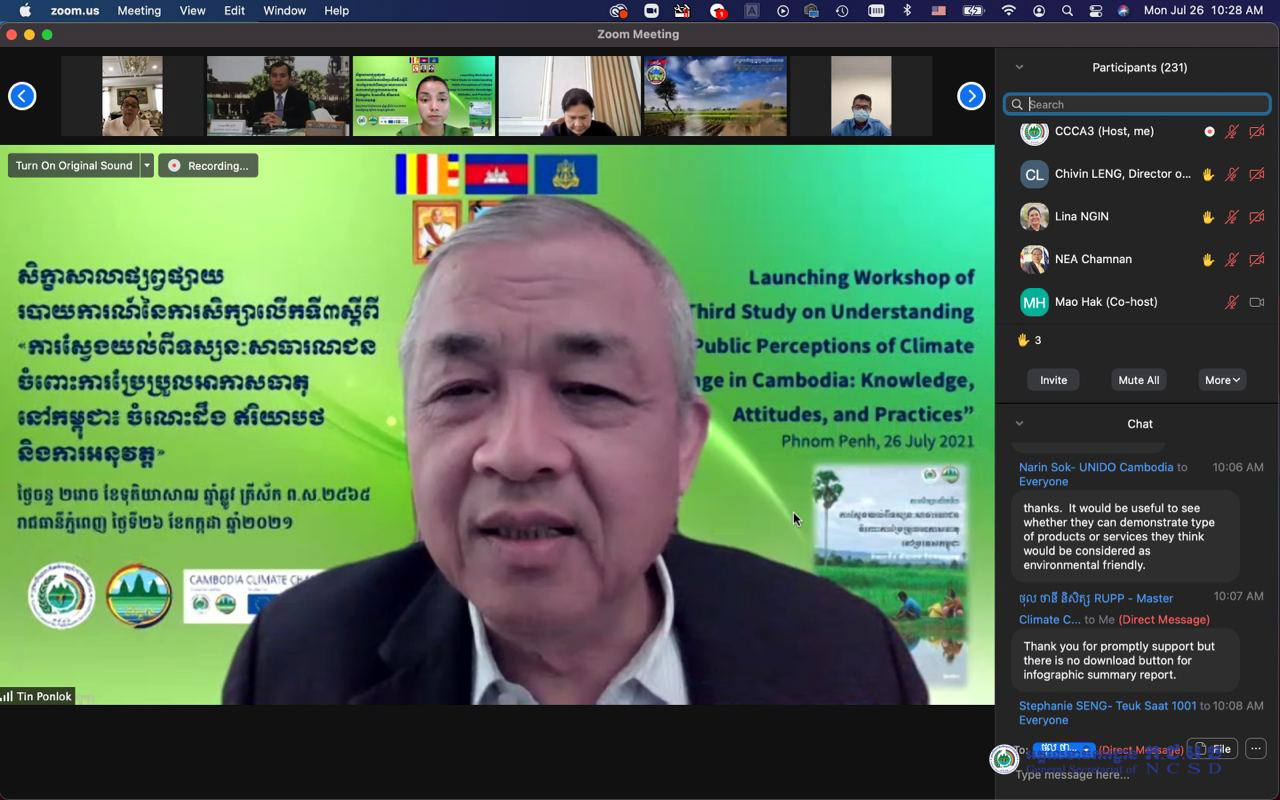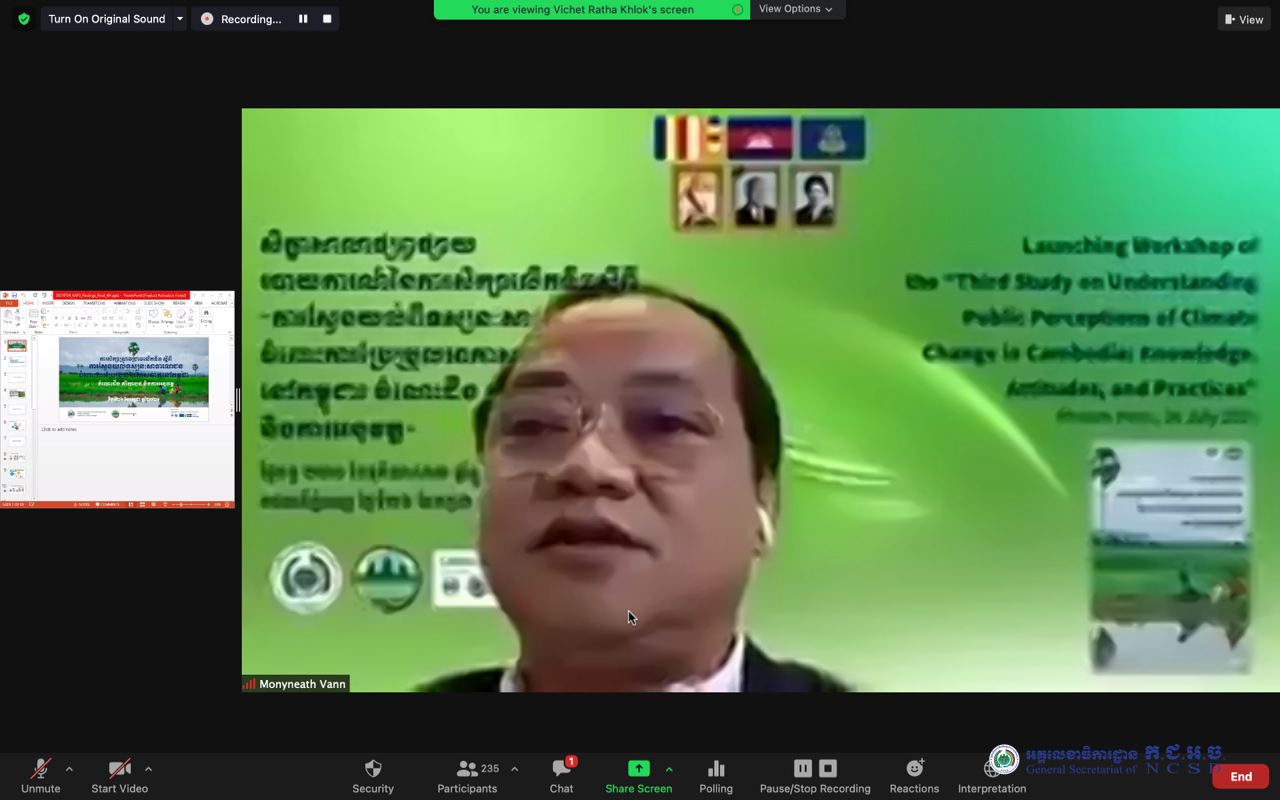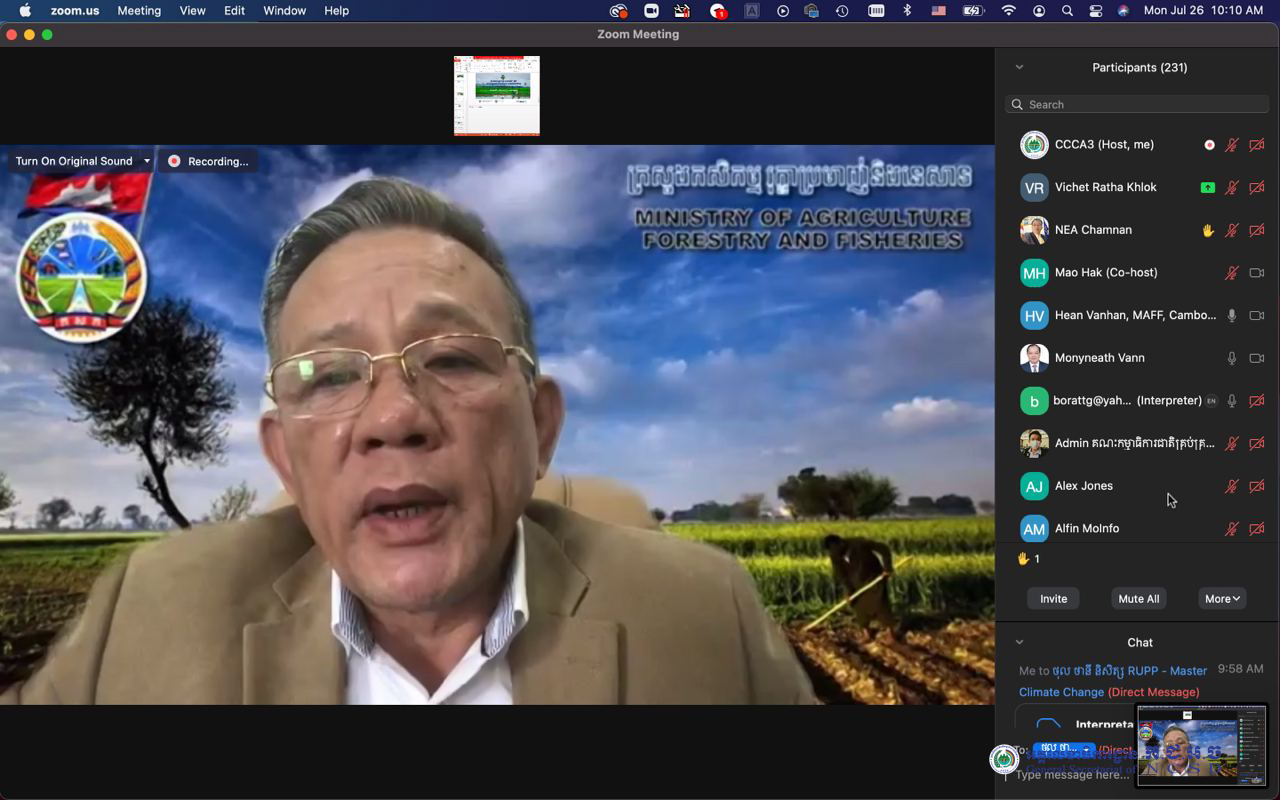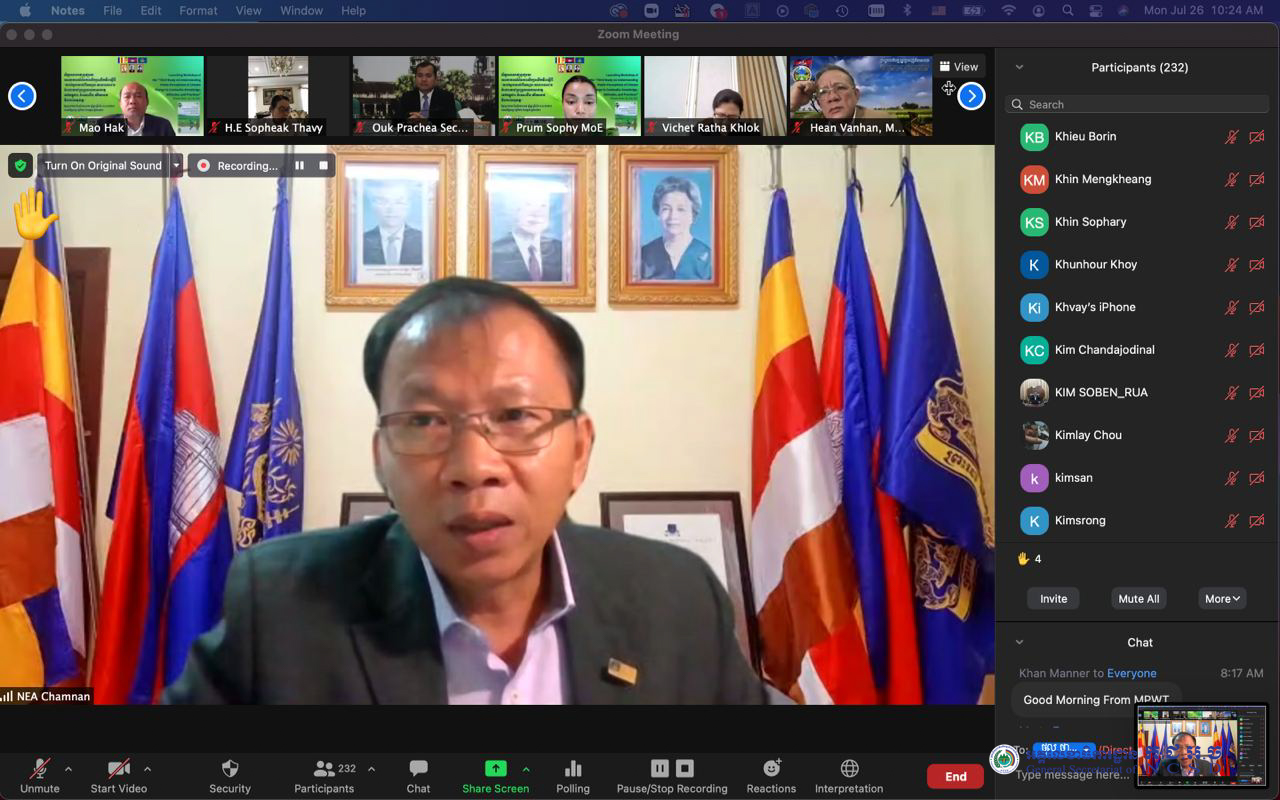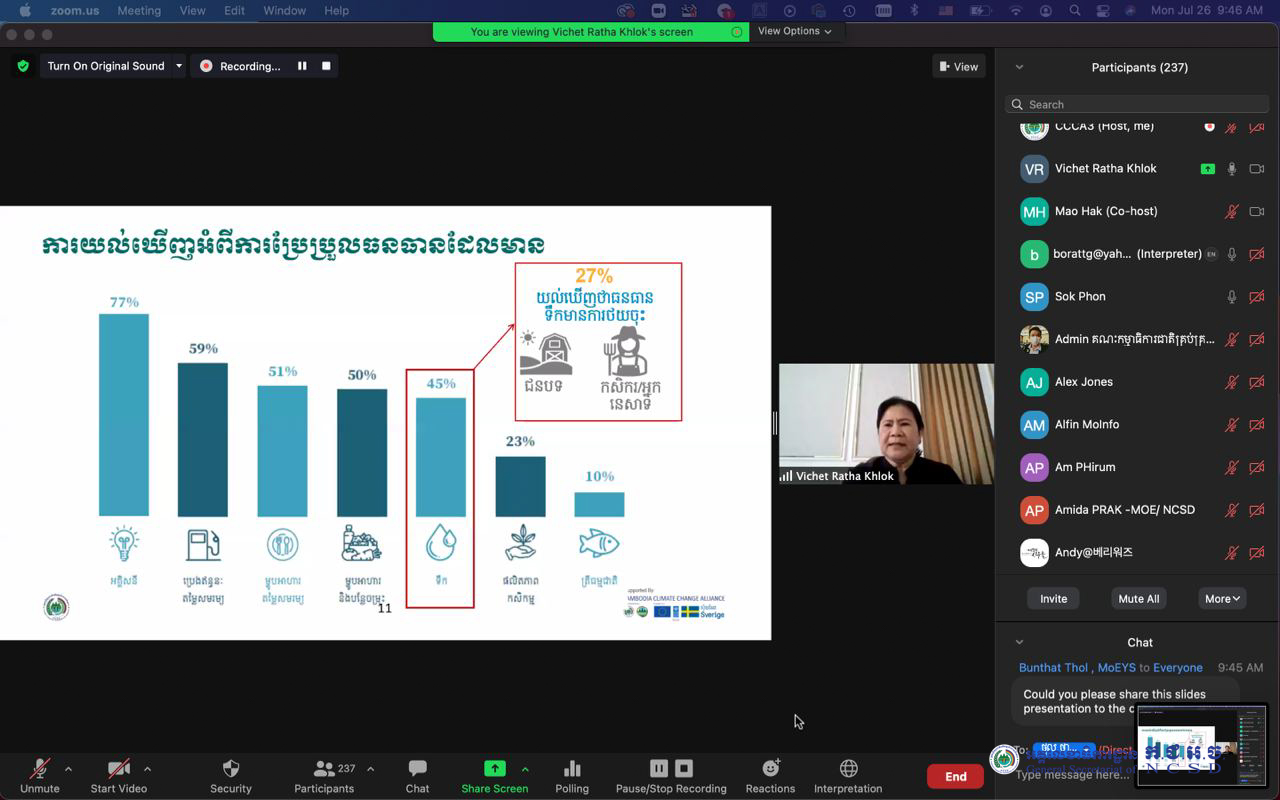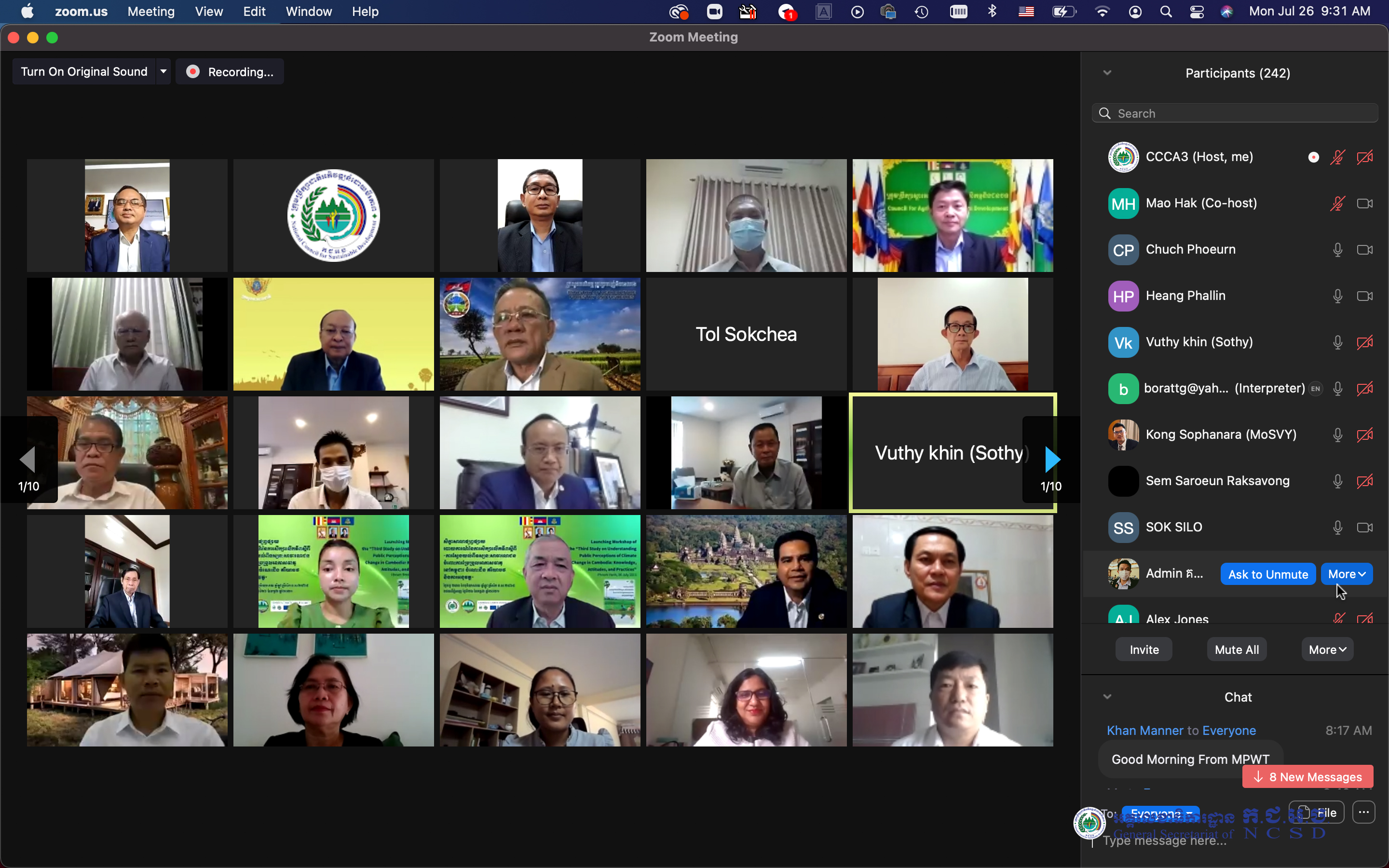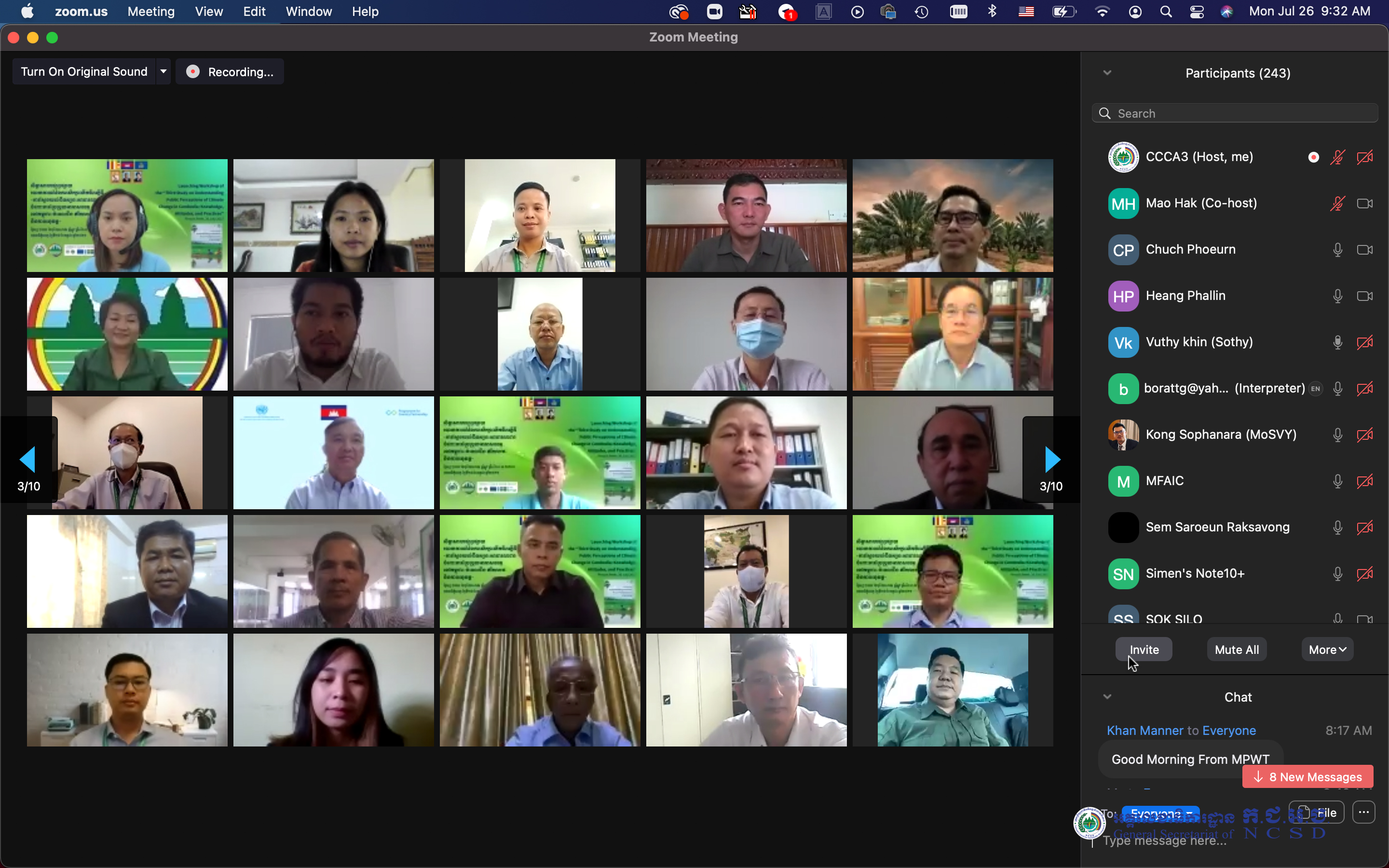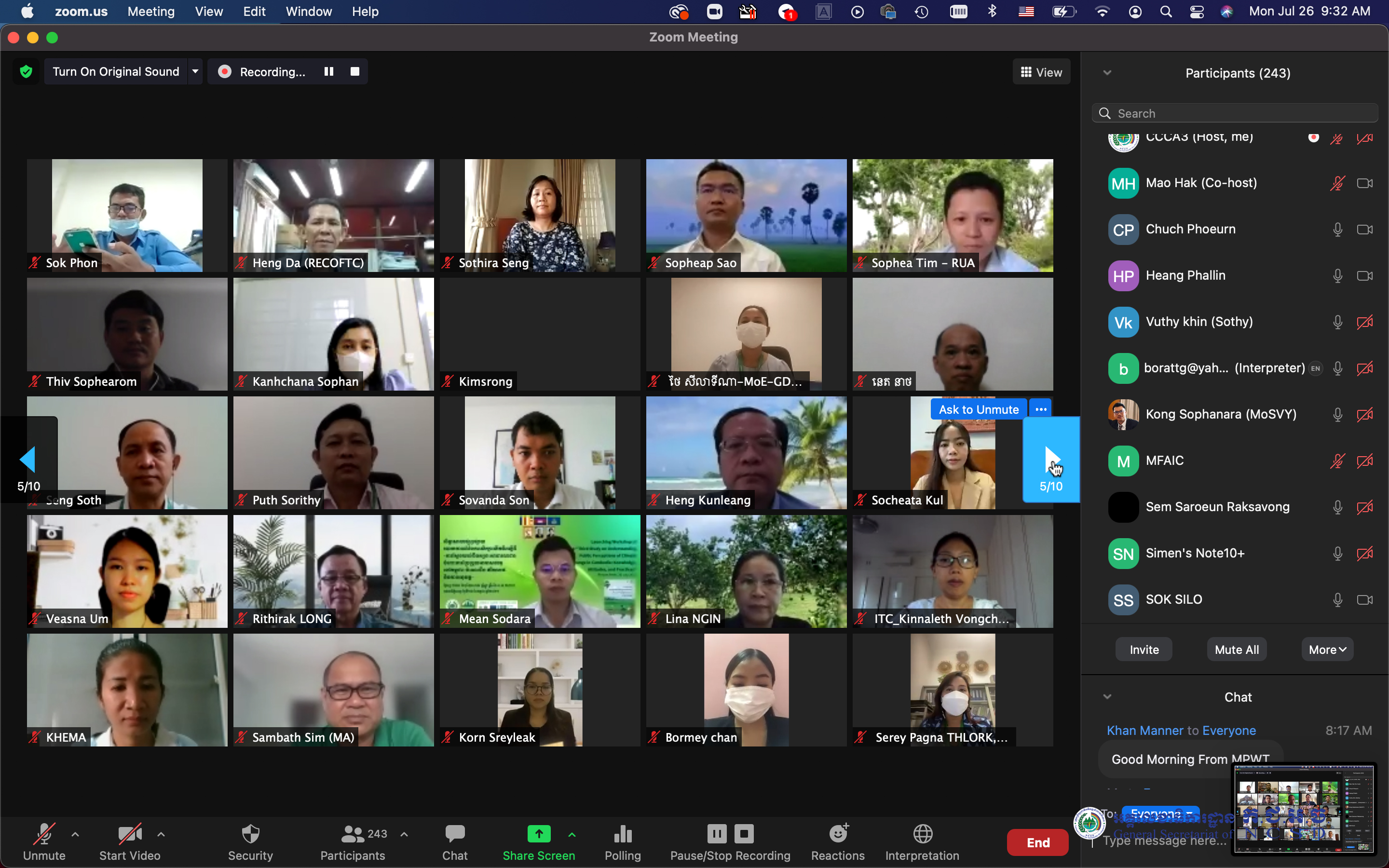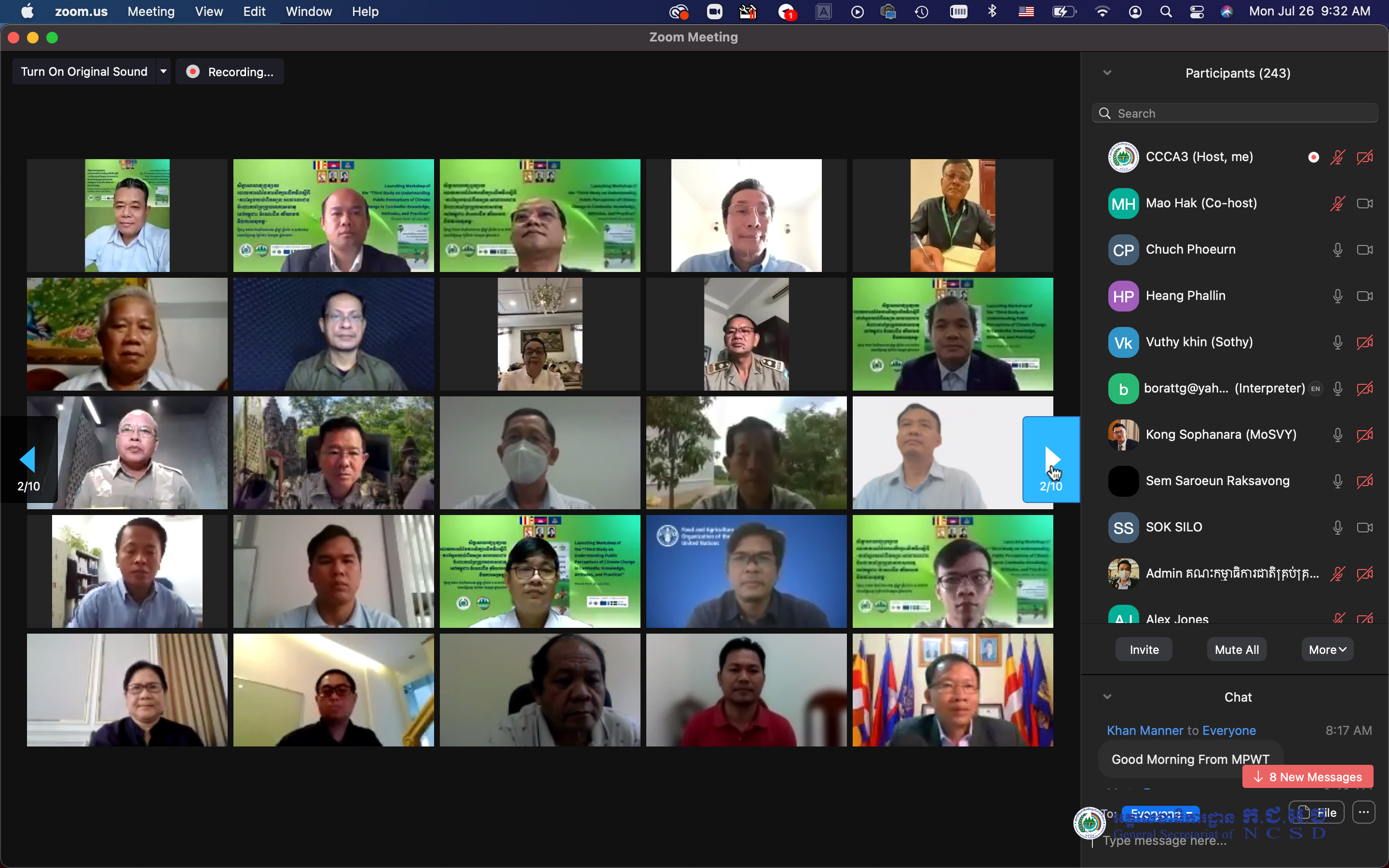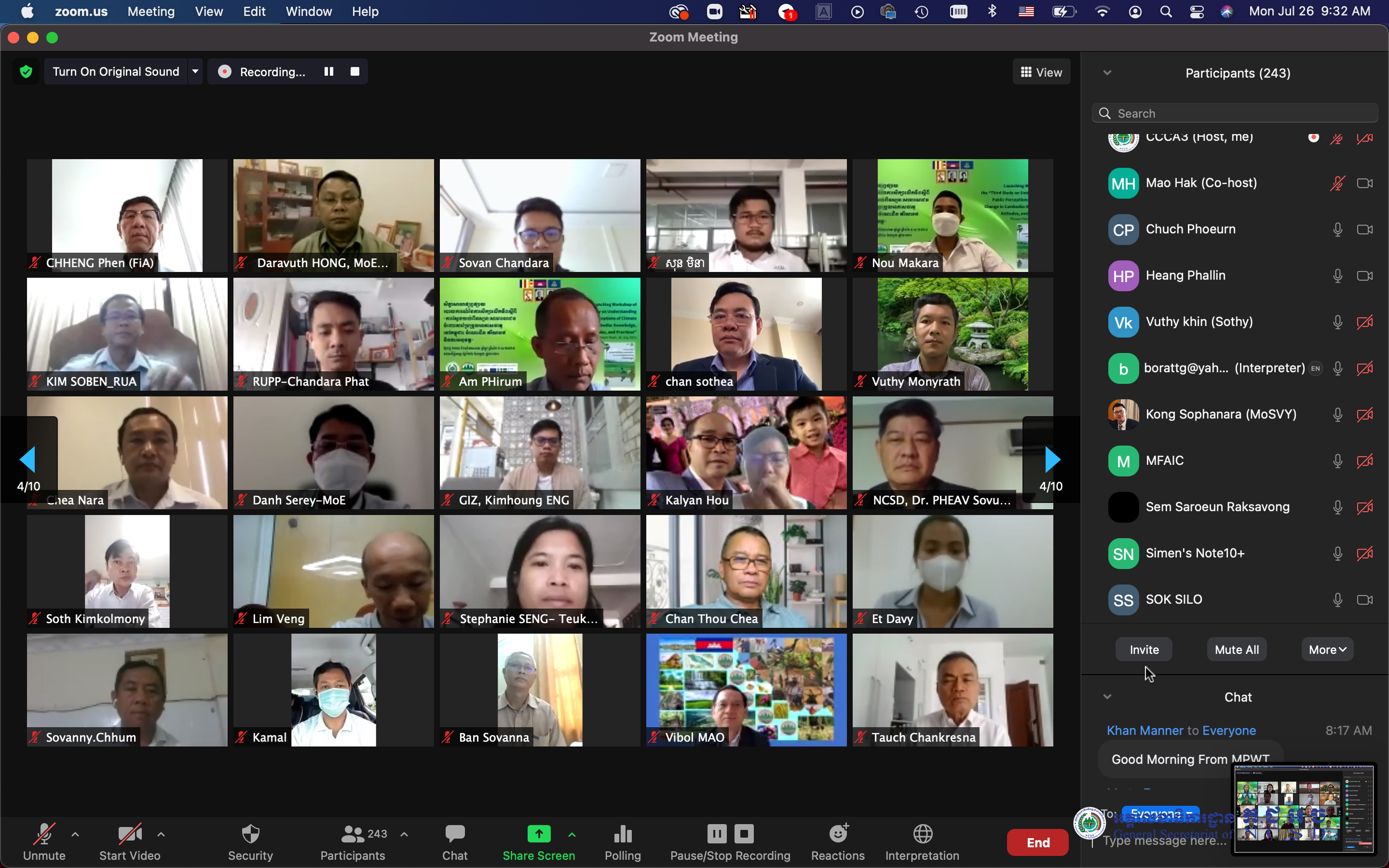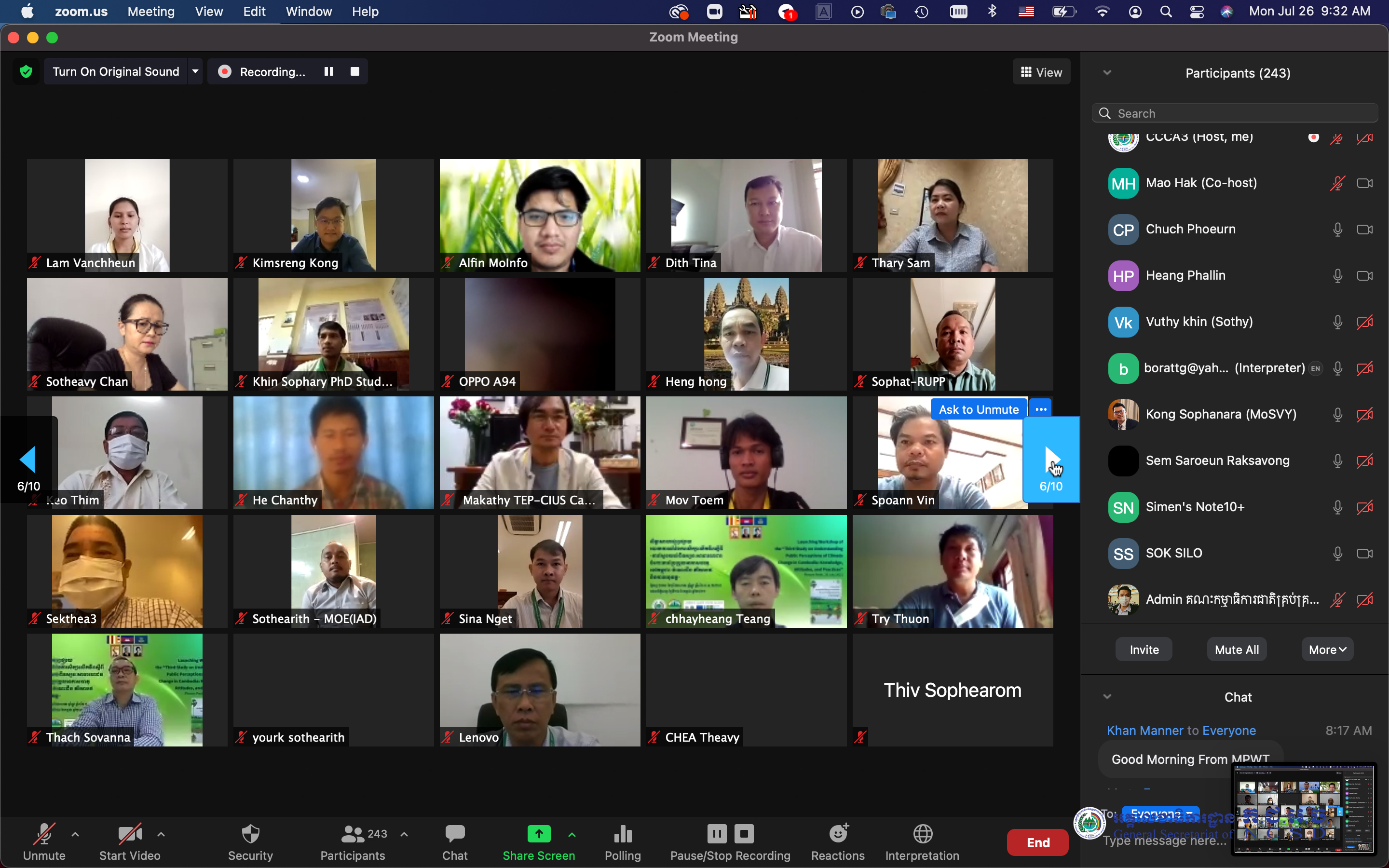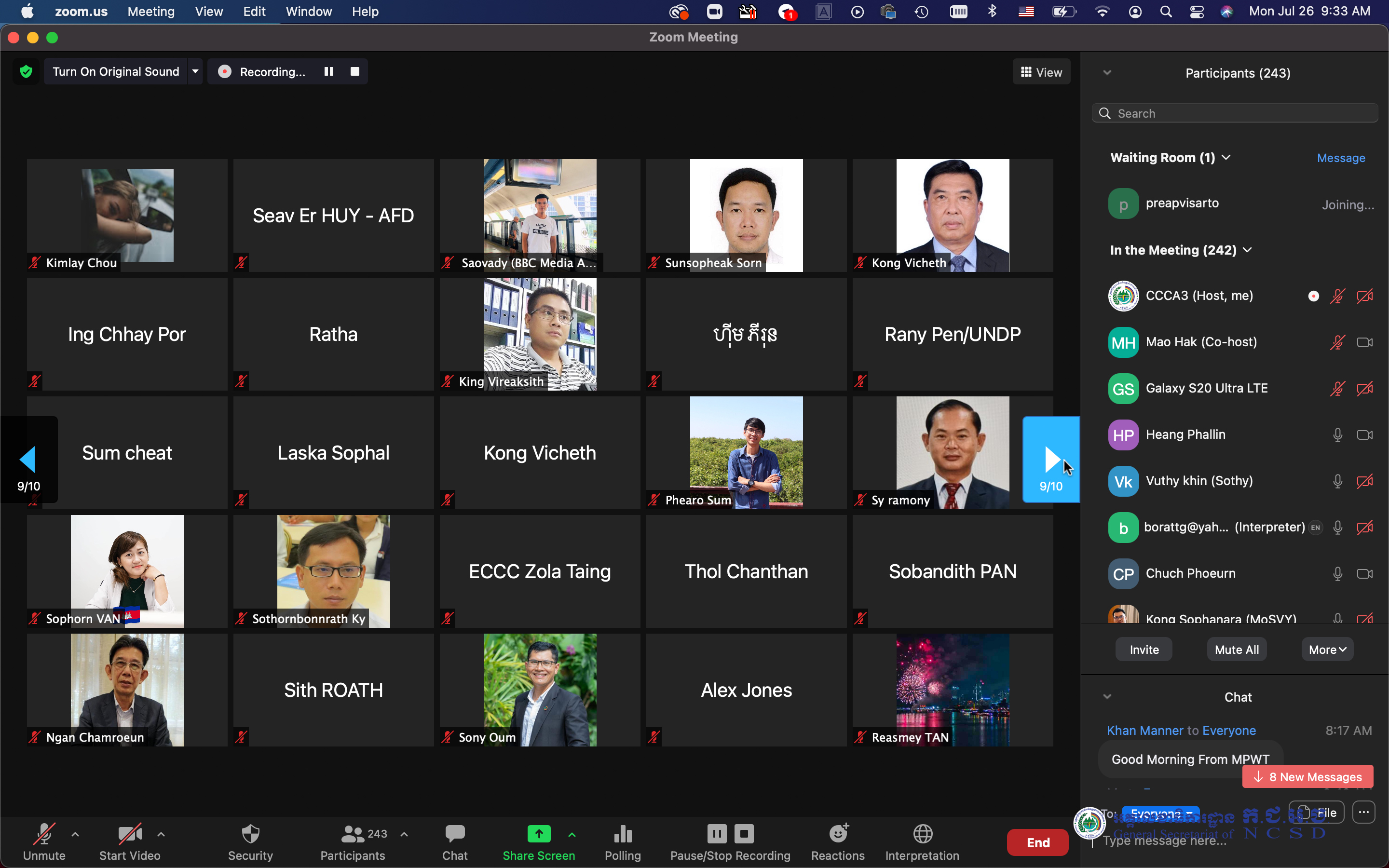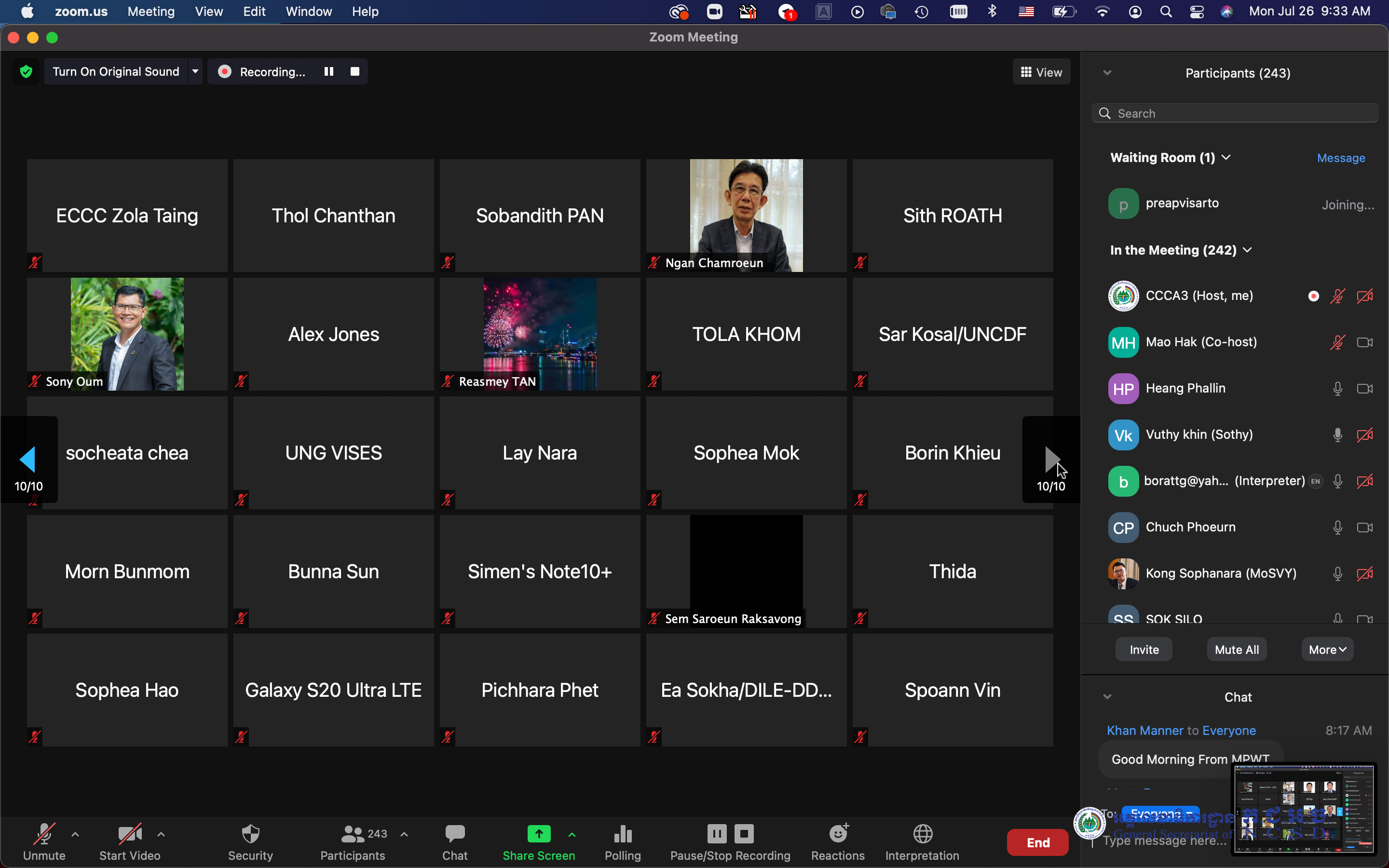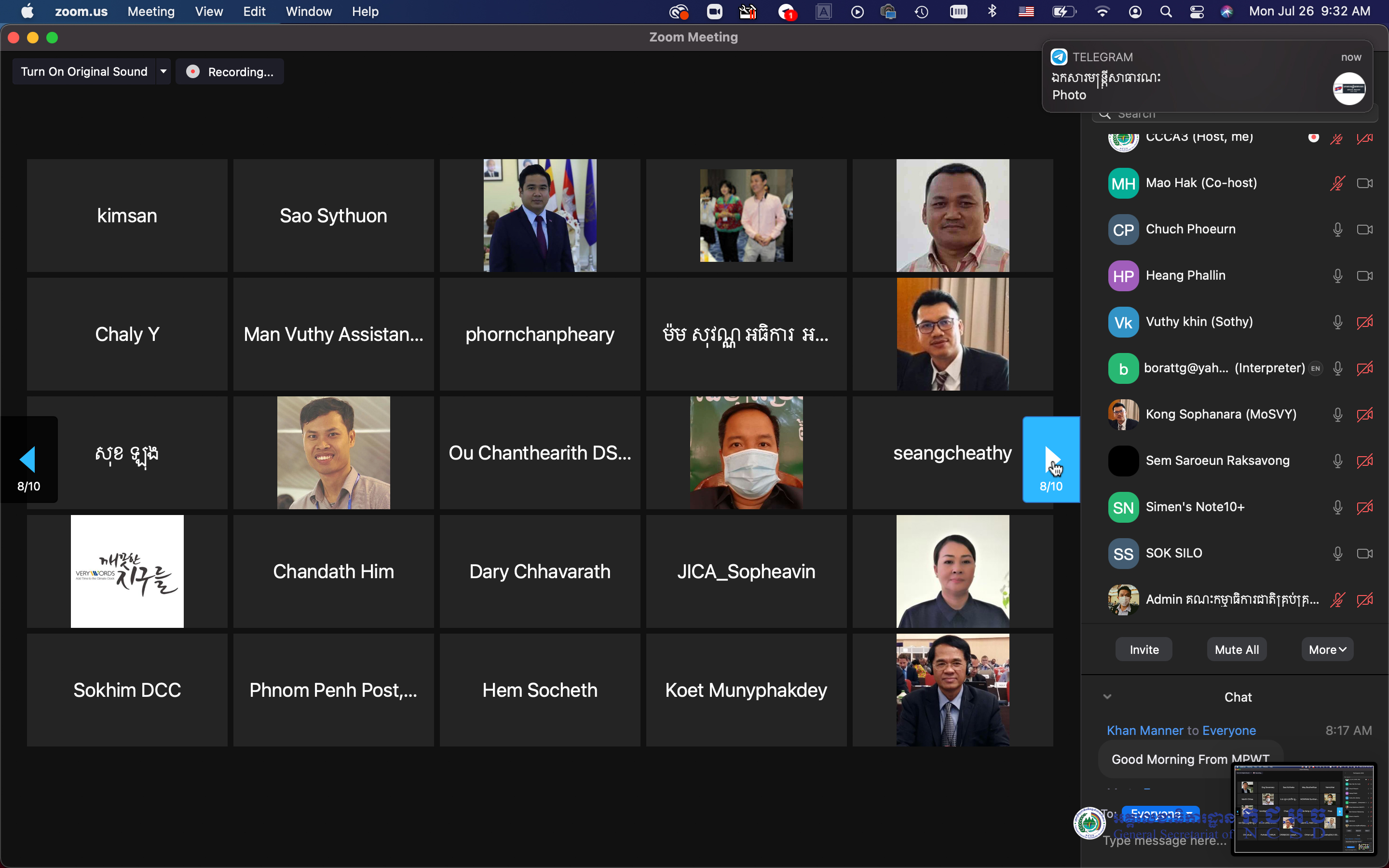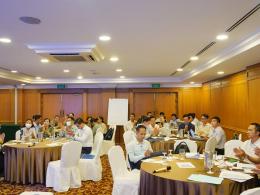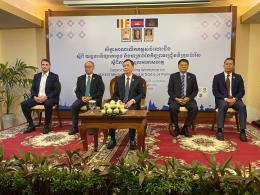The Department of Climate Change (DCC) of the General Secretariat of the National Council for Sustainable Development (GSSD), under the support of Cambodia Climate Change Alliance (CCCA), organized a virtual launching of the report “The Third Study on Understanding Public Perceptions of Climate Change in Cambodia: Knowledge, Attitudes, and Practices (KAP3)” on 26th July 2021. The launching was chaired by H.E. Tin Ponlok, 2nd Deputy Chairman of the National Council for Sustainable Development (NCSD) and Secretary of State of the Ministry of Environment (MoE), the honored representative, H.E. Say Samal, Chairman of the NCSD and the Minister of the MoE with the participation of representatives from the line ministries/NCSD members, members of Climate Change Technical Working Group (CCTWG), development partners, NGO/CSOs, academia, and private sector, a total of 243 participants.
Ms. Sonali Dayaratne, UNDP’s Deputy Resident Representative congratulated the NCDS through its department (DCC) for making the KAP3 report happen. She highlighted that the KAP3 results provide necessary inputs for all stakeholders to better design joint interventions to improve Cambodia's adaptive capacity, reduce emissions, and ultimately fulfill commitments outlined in the Paris Agreement.
H.E. Tin Ponlok highlighted that climate change is an intersectoral issue posing a threat to economic and social development and affecting livelihoods now and in the future. He added that Cambodia is among the countries most vulnerable to the impacts of climate change and Cambodians have already faced climate change related extreme events such as floods, droughts and severe storms. Moreover, he emphasized that the impacts of climate change have been increasingly felt in other countries too, such as the recent heat wave in Canada, severe flooding events in Europe, droughts in the Middle East, and unprecedented melting of the Arctic icebergs show. In addition to that, the changing climate has continuously been raised in the social-economic, environmental and political discussion in the region and in the international discussions too.
H.E. Tin Ponlok added that the Royal government of Cambodia has addressed the impacts of climate change at national, regional, and international levels and the issue has been mainstreamed into the Government Rectangular Strategy, National Strategic Development Plan, Sustainable Development Goals, sectoral planning, and budgeting. The MoE has prepared based on its mandate comprehensive policies and strategic plans to respond to the challenge of climate change.
H.E. Tin Ponlok emphasized that the KAP3 findings will become a significant input to design policies, interventions, and action plans to address the impacts of climate change in order to increase the knowledge, attitude, and practices as well as promote sustainable living of Cambodians. The policies and action plans play significant roles in building climate-resilient, low-carbon modes of development and sustainable social-economic development. He finally thanked the European Union and the Government of Sweden for supporting the preparation of this study's through the support to the CCCA3.
The KAP studies are conducted every five years to inform the design of future awareness-raising efforts and mechanisms and interventions to engage different groups of Cambodia’s society to be effective agents of change in responding to climate change challenges. The first, KAP1, was conducted in 2010, followed by KAP2 in 2015, and this document, KAP3, in 2020. Find the entire document in the link:
https://ncsd.moe.gov.kh/resources/document/KAP3_EN
